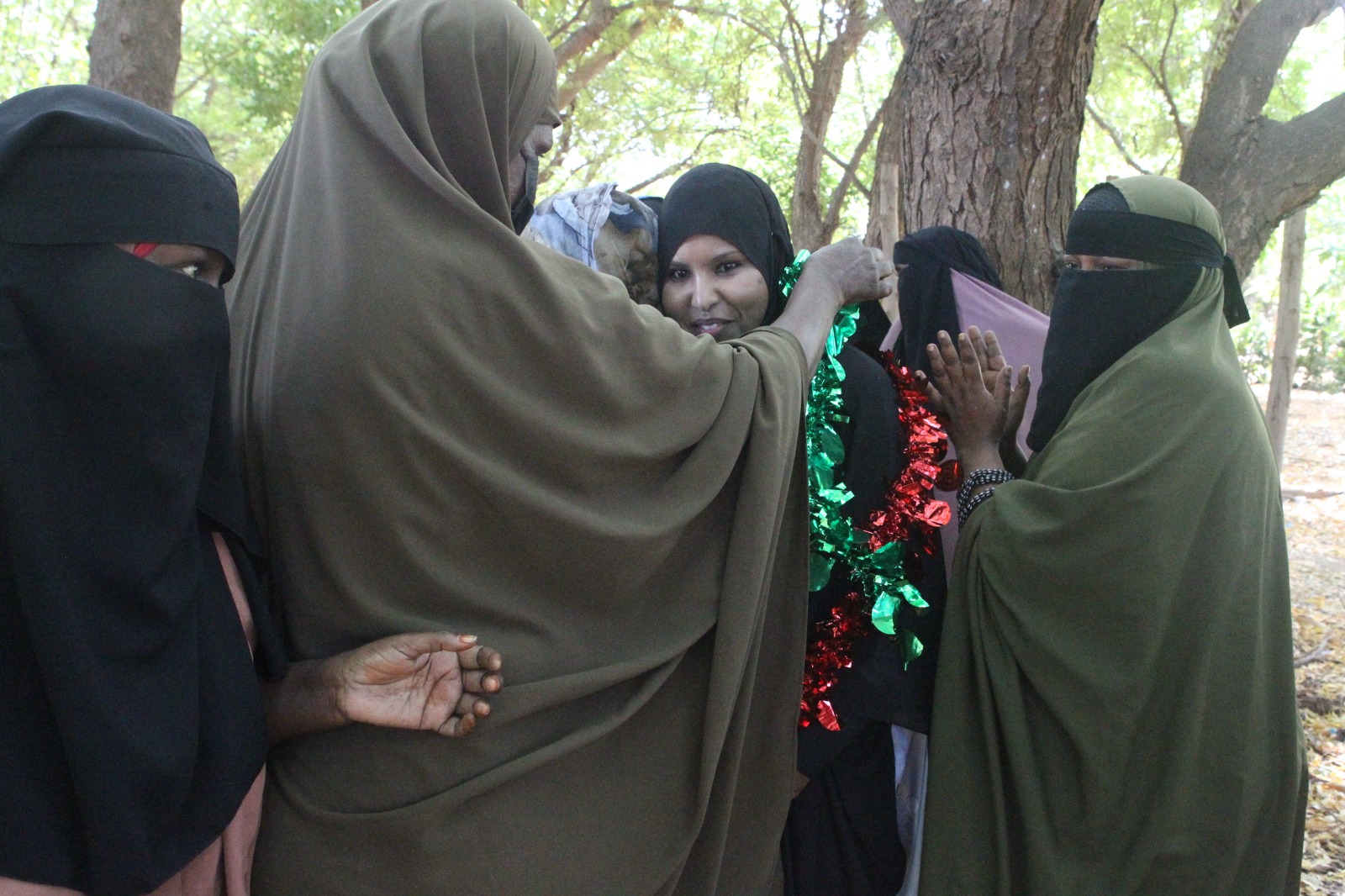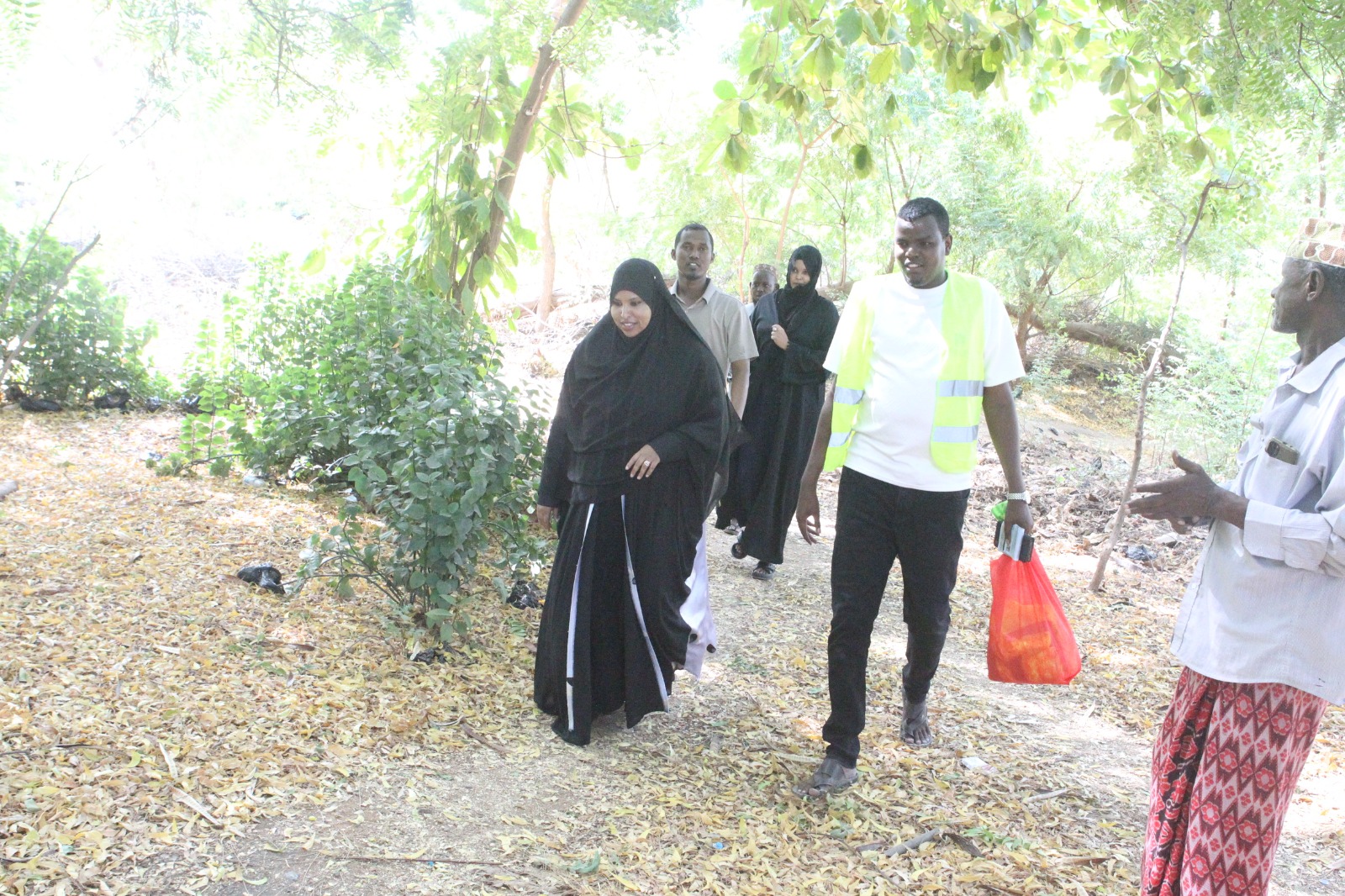
Six arrested over suspected human trafficking scheme in Garissa
Masalani OCPD Joseph Kotut confirmed the incident on phone
“Change begins when we stop voting for names and start voting for solutions.”
In Summary

Audio By Vocalize

East Africa Legislative Assembly [EALA] MP Falhada Iman with the youths in Iftin ward, Garissa township./STEPHEN ASTARIKO

East Africa Legislative Assembly [EALA] MP Falhada Iman with the youths in Iftin ward, Garissa township./STEPHEN ASTARIKO
East African Legislative Assembly (EALA) MP Falhada Iman has called on the people of Garissa to break away from entrenched clan politics and the recycling of familiar political faces ahead of the 2027 general election.
Speaking during a public address in Garissa town, the former senator said the region's political choices have long been dictated by family lineage rather than the ability to deliver results.
She urged voters to focus on leaders’ integrity, vision, and service instead of their surnames or clan ties.
“For far too long, politics here has become a family business, where the people are silent shareholders with no dividends,” Falhada said.
“Change begins when we stop voting for names and start voting for solutions.”
Clan dynamics have already started shaping the political landscape in Garissa, with various groups backing their preferred candidates.
Last week, the Awdhaq clan endorsed former governor Ali Korane as its choice for the 2027 gubernatorial race.
That announcement came just weeks after the Samawadhal clan declared its support for Ibrahim Abaas for the same seat.
But Falhada dismissed these early endorsements as part of a tired cycle that has held the region back.
“We’re not fighting individuals,” she clarified.
“We are rejecting a system that recycles leaders without results. We must rise beyond recycled surnames and inherited power.”
She argued that true progress can only come from choosing leaders based on merit and commitment to the people, not family ties.
“Leadership is not a birthright. It is a responsibility earned through integrity, service, and vision,” she said.
“We cannot keep seeing the same names and faces every election cycle. Power must rotate.”
Falhada pointed to stalled development projects and mismanaged public resources as evidence of a broken system propped up by clan-based politics.
She said this approach has failed to address the pressing needs of Garissa’s youth, women, and marginalised communities.
Negotiated democracy—a system common among pastoralist communities in northern Kenya—has often shaped election outcomes through clan consensus rather than individual merit.
While acknowledging the cultural importance of this system, Falhada challenged voters to consider whether it truly serves their development needs in the modern context.
She expressed hope that 2027 could mark a turning point, especially with the growing influence of younger, more informed voters.
“Young people are no longer interested in where someone comes from. They care about what someone can do,” she said.
“Choosing leaders based solely on clan affiliation has not served us well. It has divided us, limited capable candidates, and left us lagging behind.”
Meanwhile, it remains unclear which position current Senator Abdul Haji will contest in 2027.
He has stated only that he will let the people advise him on which seat to pursue, after taking over from his late father.
Falhada’s message was clear: the future of Garissa depends on breaking the cycle of clan-based politics and electing leaders who offer real solutions to everyday problems.

Masalani OCPD Joseph Kotut confirmed the incident on phone